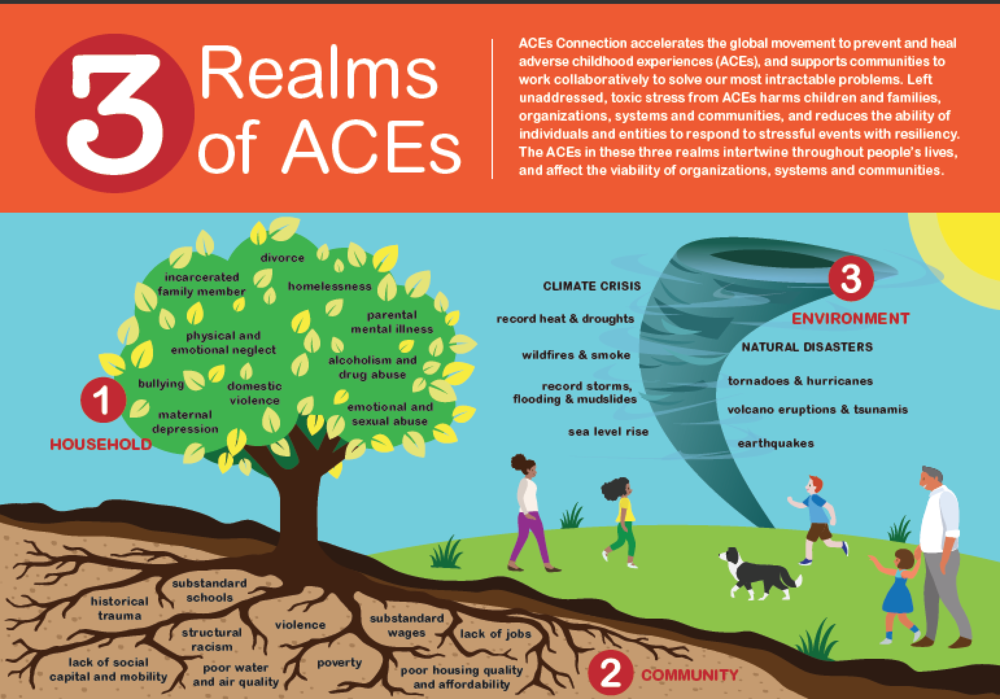
June is PTSD Awareness Month. Post-traumatic stress disorder (PTSD) affects the approximately 2.7 million children of inmates in the U.S. at a higher rate than their peers who do not have an incarcerated parent. Many children of inmates have witnessed acts of violence or experienced neglect as the result of parental confinement and separation. According to the Centers for Disease Control and Prevention (CDC), the effects of such experiences have life-long consequences: “Children growing up with toxic stress may have difficulty forming healthy and stable relationships. They may also have unstable work histories as adults and struggle with finances, jobs, and depression throughout life.”
In 1997, the CDC and Kaiser Permanente published a study following over 17,000 adult participants through surveys administered during the individuals’ routine physical check ups regarding their childhood experiences and current health status and behaviors. The study identified and measured 10 adverse childhood experiences (ACES), which included physical, emotional, and sexual abuse; physical and emotional neglect; mental illness; domestic violence toward mother; divorce; substance abuse and having an incarcerated parent. In a study by health and wellness researcher Kristin Turney (2018), it was shown that “Children of incarcerated parents are exposed to nearly five times as many other ACEs as their counterparts without incarcerated parents,” and that young children aged 0-6 years tend to experience even greater effects of the ACEs than older children.
A recent study (2023) has outlined some critical interventions for children experiencing ACEs and the often-resulting PTSD, including support from school staff and access to psychological treatment. However, it also cautions that, while many mentoring programs have arisen out of this need for support, tailored treatment and training in the specific needs and issues that children of inmates face should be paramount in any program.
Sparks for Success was specifically founded with children of inmates in mind. Sparks provides group music therapy in Central Texas schools, free of charge to children, families and the schools. Music therapists trained in trauma and familiar with the unique circumstances faced by these children employ music-based interventions to help them deal with their traumas and develop positive coping skills such as impulse control. By learning how to interact positively in a group environment, these children gain the ability to more successfully manage the effects of ACEs and other challenging, often ongoing situations in their lives.
A 2015 study found that 45% of elementary-aged children of inmates scored 5 points lower on a school engagement measure (as compared to their peers who did not have an incarcerated parent), indicating they were less motivated to attend school or work toward positive achievements. However, in a recent survey administered to Sparks’ students, 53 of the 64 students surveyed (82.8%) reported music therapy being enjoyable and providing them with something to look forward to about being in school. Nearly 83% also reported increased self esteem as a result of attending 4 or more music therapy sessions during the year.
Your support helps Sparks continue to give children of inmates opportunities to make good choices and develop life-long resilience in a fun and rewarding way.
For a more in-depth look at the effects of parental incarceration on children, check out our Research Links page.

